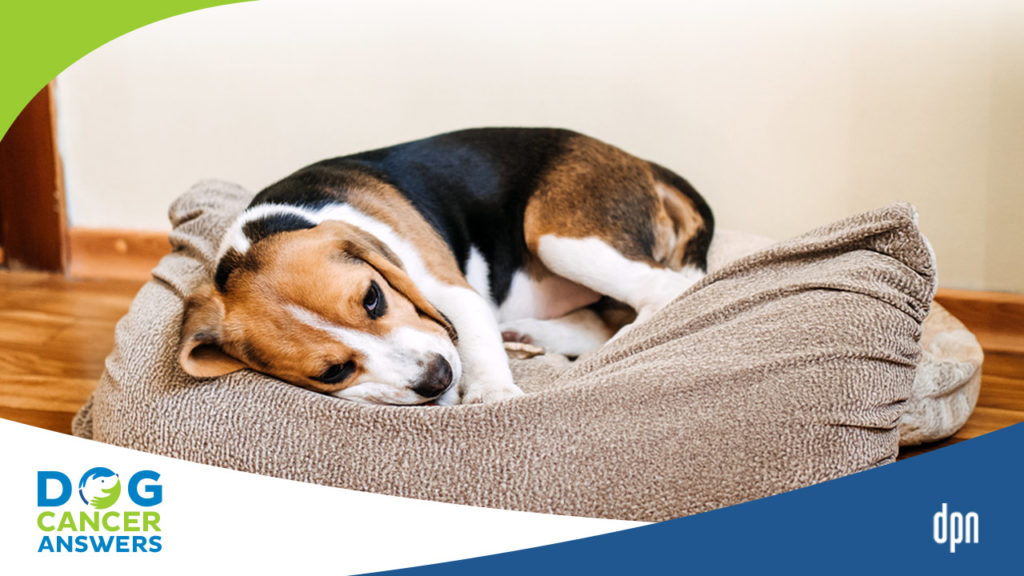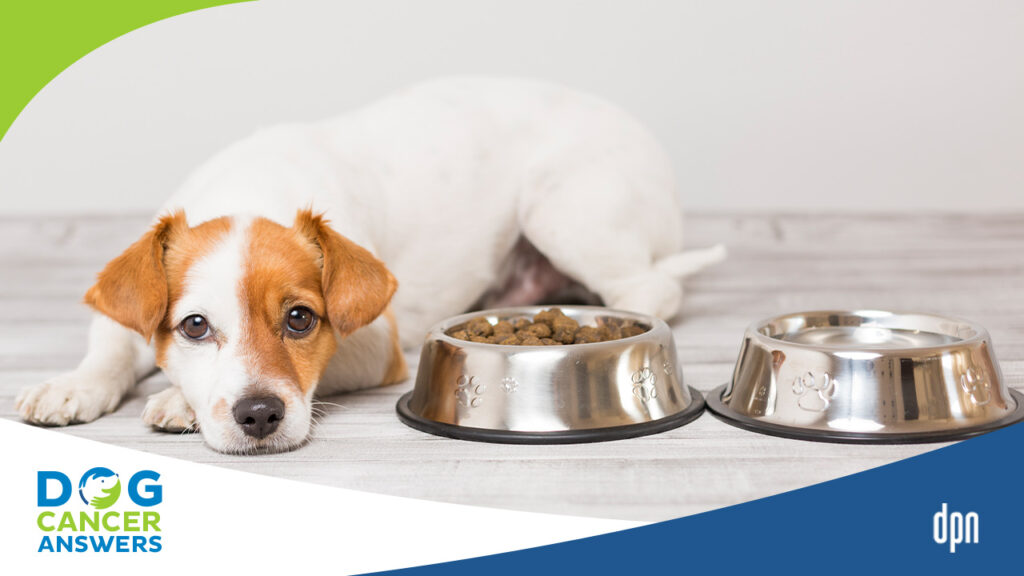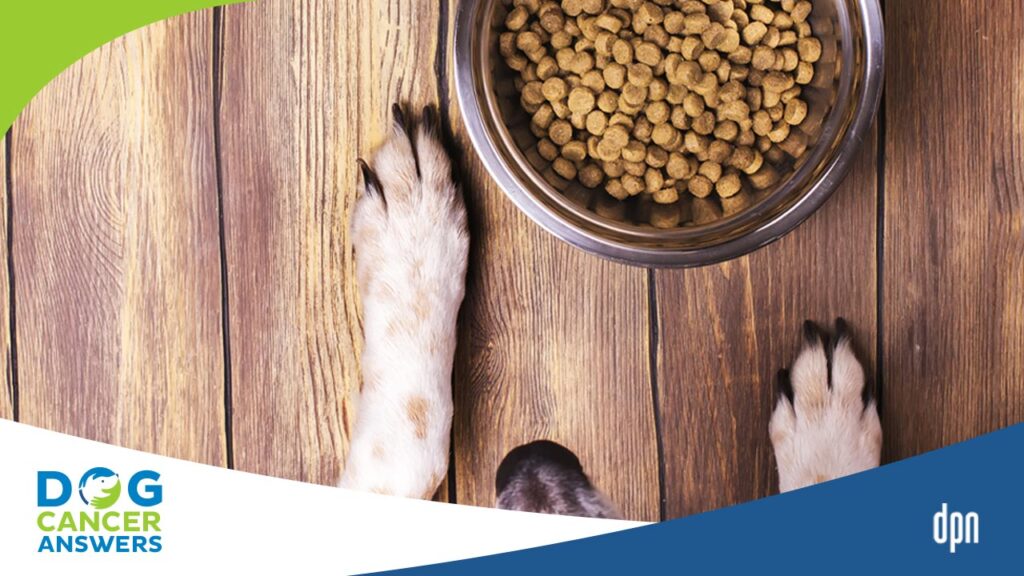Nausea is a common complication of cancer and cancer treatments. There are many options for managing nausea in dogs, ranging from medications to natural remedies.
Key Takeaways
- The first treatment for nausea is withholding food for a while. Your veterinarian may also prescribe maropitant (Cerenia), metoclopramide (Reglan), or cimetidine (Tagamet). If you have fresh ginger or ginger juice on hand, that is an excellent home remedy to try.
- If your dog is nauseous but not throwing up, it’s because they have some sort of underlying problem. There are many causes of nausea, so your veterinarian may need to help troubleshoot the cause.
- You can tell if a dog is nauseous if they seem eager for food but then turn their head away when they get close to it, if they are refusing food, drooling, and restless. Vomiting is also a sign that your dog feels nauseous.
- You should be concerned about your dog’s nausea if your dog hasn’t eaten or had any water for 24 hours, or if your dog has persistent and severe vomiting (more than three times in 24 hours).
- Nausea in dogs can have many causes such as eating too fast, overeating, eating something spoiled, new medications, dietary changes, new supplements, and motion sickness. Cancer and cancer treatments can also cause nausea.
Signs of Nausea in Dogs
Most everyone has experienced nausea – the unsettled queasy feeling in the stomach that makes you feel like vomiting – but many don’t recognize the symptoms of nausea in dogs.
That’s because nausea in dogs is not always so apparent to humans. We tend to tell each other, “I feel sick,” and hold our stomachs, but dogs don’t do either.
Signs of nausea in dogs include:
- Showing interest in food but not eating
- Seeming to want food, but turning their head away at the last minute
- Refusing food entirely
- Drooling, licking lips, or swallowing frequently
- Vomiting or dry heaving
- Restlessness
- Hunched posture
- Whining or other vocalizations
Why Dogs Get Nauseous
Just like in humans, nausea in dogs has many possible causes.
In dogs with cancer – especially cancers affecting the gastrointestinal (GI) tract – nausea may be caused by the cancer itself.
Nausea is also a common side effect of cancer treatments and can be caused by anesthesia, surgery, chemotherapy drugs, radiation, or other medications.
Dietary changes can induce nausea in some dogs and should be considered a possible cause if new foods have recently been introduced.
Motion sickness is another culprit. More sinister causes of nausea include liver or kidney failure.
Keep in mind that dogs who are nauseous but aren’t throwing up still feel uncomfortable and ill, just like humans do.
Integrative oncologist Dr. Trina Hazzah explains why nausea is a critical symptom to resolve in this episode of DOG CANCER ANSWERS.
How to Treat Nausea in Dogs
Nausea is a “non-specific” symptom that could indicate a wide range of problems. That’s why if you think your dog may be feeling nauseous you should always discuss it with your veterinarian. In the meantime, there are steps you can take at home to help your dog feel better until your veterinarian can weigh in.
- First, withhold food for at least 12 hours, starting as soon as you notice symptoms.
- If you have anti-nausea medication from your veterinarian, give it as prescribed as soon as you notice symptoms.
- Offer your dog water or ice cubes frequently to help keep her hydrated.
- After 12 hours, try feeding small amounts of a low-fat, bland diet (such as boiled chicken and white rice or a commercially prepared prescription diet) every few hours.
- If nausea subsides with this approach, you may then slowly transition back to your dog’s normal diet by gradually offering her usual food.
You should also think about what might have caused this nausea.
New Medication or Other Change?
If your dog just started a new medication, double-check the label. Does it say to give with food? Some may cause nausea if given on an empty stomach. Giving the next dose with food may prevent nausea. On the other hand, some medications must be given on an empty stomach to be effective, so make sure you read labels carefully.
Any dietary change, new supplement, or new medication may cause gastrointestinal upset in dogs. Make a list of anything brand new you’ve added to your dog’s routine. That way if you need to call your veterinarian, you will be able to give them more clues about what might be going on.
When to Call Your Vet
Call your veterinarian if nausea persists, and your dog does not begin eating or drinking again after 24 hours.
Also, if nausea is accompanied by vomiting that is persistent or severe (vomiting more than three times in 24 hours), call your veterinarian.
Don’t hesitate. Vomiting is dehydrating, dehydration can happen quickly, and it may make nausea worse. Your dog may need treatment with stronger injectable medications and fluids.
Even oncologists feel crazy when their dogs won't eat. Dr. Sue Ettinger on nausea in this episode of DOG CANCER ANSWERS.
Things that Help Nausea
If your dog is nauseous at home and you can’t yet get to the veterinarian for a prescription, ginger is a natural remedy for alleviating nausea. It has also been shown to have other positive effects, including anti-inflammatory properties, anxiolytic properties, and appetite stimulation. Ginger is thought to have some blood-thinning effects, so it is generally recommended to discontinue at least one week prior to surgery and not to use it at all if your dog is on anticoagulant therapy.1
Acupuncture is another natural remedy that may be used for managing a variety of gastrointestinal symptoms, including nausea, vomiting, diarrhea, and inappetence. There are few contraindications for acupuncture. Dogs tolerate it well, with few to no adverse effects. Acupuncture must be performed by a veterinarian trained in it. But they can also teach you how to do acupressure (basic acupuncture without needles) at home.
Acupressure is basically acupuncture without needles, instead using gentle pressure applied at specific points. This is an excellent tool that any dog guardian can be taught to use at home to help relieve nausea.
If a treatment or procedure is likely to cause nausea, most veterinarians will send you home with anti-nausea medication to have on hand. Common medications to treat nausea in dogs are maropitant (Cerenia), metoclopramide (Reglan), and cimetidine (Tagamet).
Is Nausea a Sign of the End?
Nausea negatively affects quality of life and can signal disease progression, but more often it is a side effect of cancer treatments. Nausea in and of itself is not usually a sign of the end of your dog’s life.
- Dressler, D. and Ettinger, S. (2011) in The dog cancer survival guide: Full spectrum treatments to optimize your dog’s life quality and longevity. Maui, HI: Maui Media, LLC, pp. 144–145.
Topics
Did You Find This Helpful? Share It with Your Pack!
Use the buttons to share what you learned on social media, download a PDF, print this out, or email it to your veterinarian.








